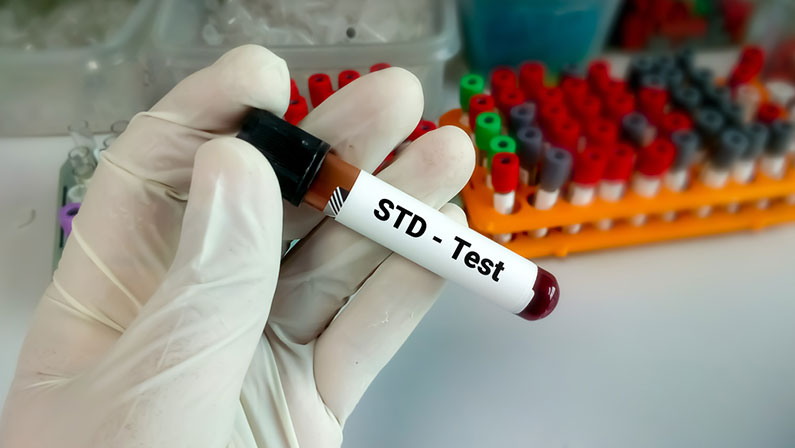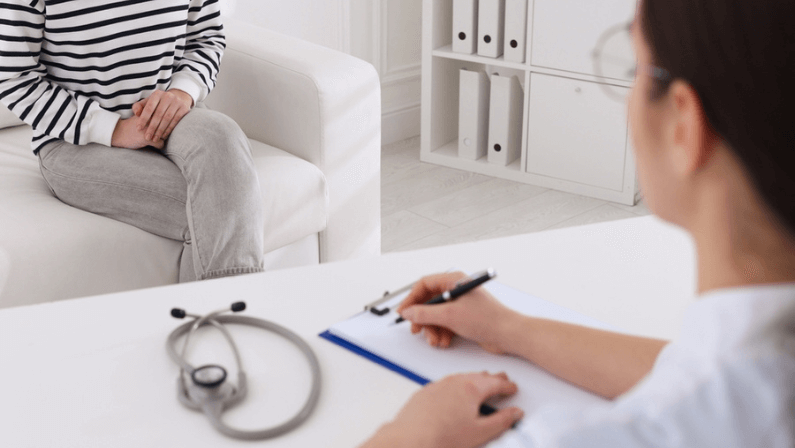Did you know that nearly 1 in 5 people in the U.S. have a sexually transmitted infection (STI)? Despite this alarming statistic, many individuals remain unaware of the importance of regular STD testing, leading to undiagnosed infections that can cause serious health complications. Regular STD testing is essential not only for identifying infections early but also for preventing long-term health issues, stopping the spread of infections, and ensuring that you can make informed decisions about your sexual health.
This article will talk about why regular STD testing is crucial for maintaining your health, who should get tested, how often testing should take place, and the benefits of early detection. We’ll also explore the mental and emotional advantages of testing and provide answers to common questions about the process. By the end, you’ll have a clear understanding of why regular STD testing should be part of your healthcare routine.
What Is STD Testing and Why Is It Important?

STD testing refers to the process of being tested for sexually transmitted diseases (STDs), also called sexually transmitted infections (STIs). These tests are typically non-invasive and can involve blood draws, urine samples, or swabs to detect various infections. Common STDs include chlamydia, gonorrhea, syphilis, human immunodeficiency virus (HIV), herpes, and human papillomavirus (HPV).
The importance of regular STD testing is multi-faceted:
- Early Detection Saves Lives: Many STDs can go undetected because they don’t show symptoms, especially in the early stages. Regular testing helps catch infections before they cause permanent damage or spread to others.
- Prevention of Complications: Without early detection and treatment, STDs can lead to severe health problems like infertility, organ damage, or increased susceptibility to other infections, including HIV.
- Peace of Mind: Regular testing helps remove the uncertainty surrounding your sexual health, providing peace of mind so you can focus on enjoying a fulfilling and safe sex life.
- Protecting Your Partners: Regular testing is not only for your health but also for the well-being of your sexual partners. By staying informed, you reduce the risk of transmitting infections and protect those you care about.
Who Should Get Tested for STDs?
STD testing is important for everyone who is sexually active, but certain groups should prioritize it more.
Here’s a breakdown of who should get tested:
- Anyone Who Is Sexually Active: If you have sex, especially with multiple partners or without protection, regular testing should be part of your routine healthcare.
- Individuals with New or Multiple Partners: If you have a new partner or have multiple partners, it’s important to get tested to prevent unknowingly passing an infection to others.
- Unprotected Sex: Condoms are effective in reducing the risk of most STDs, but they aren’t foolproof. If you engage in unprotected sex, you should be tested more frequently.
- People with Symptoms: If you notice symptoms such as sores, unusual discharge, pain during urination, or itching, it’s crucial to get tested immediately.
- People at High Risk: Those with a history of STDs, compromised immune systems (like HIV), or those engaging in certain high-risk sexual behaviors should test more often to avoid complications.
- Pregnant Women: Pregnant women should get tested to avoid transmitting infections to their baby, which can have serious consequences for the newborn’s health.
How Often Should You Get Tested for STDs?

How often you should get tested depends on your sexual activity and health risks.
Here’s what you need to know:
- Annually: For most sexually active individuals, getting tested once a year is recommended, even if you don’t have symptoms.
- Every 3 to 6 Months for High-Risk Individuals: If you have multiple sexual partners or engage in unprotected sex, you may want to get tested every 3 to 6 months. This ensures that any infections are detected early.
- After Every New Partner: It’s advisable to get tested before engaging in sexual activity with a new partner. This helps ensure that neither party unknowingly carries an infection.
- If You Have Symptoms: If you develop symptoms, get tested as soon as possible. Some STDs can lead to severe complications if left untreated, so early detection is crucial.
- Before Starting a New Relationship: If you’re entering a new relationship, especially with someone who has had other sexual partners, it’s important to get tested to ensure you are both healthy and free of infections.
What Are the Risks of Not Getting Tested Regularly?
Not getting tested regularly poses several risks, both to your health and to those around you.
Here’s what you need to know:
- Unnoticed Infections: Many STDs don’t show symptoms immediately. Infections such as chlamydia and gonorrhea can go unnoticed, leading to the spread of the disease. Regular testing helps catch these hidden infections before they cause complications.
- Serious Health Consequences: Untreated STDs can cause irreversible damage. For example, untreated chlamydia and gonorrhea can lead to pelvic inflammatory disease (PID), which can cause infertility in women. Syphilis can damage organs and cause neurological problems, while untreated HIV can severely weaken the immune system, leading to AIDS.
- Increased Transmission Risk: If you don’t know you have an infection, you may unknowingly spread it to others. By staying on top of testing, you reduce the likelihood of passing on an infection to your sexual partners.
- Mental and Emotional Stress: Not knowing your status can cause unnecessary anxiety and stress. Regular testing provides reassurance and helps alleviate fears about undiagnosed infections.
How Does Regular STD Testing Impact Mental and Emotional Well-being?
Regular STD testing not only protects your physical health but also plays a significant role in supporting your mental and emotional well-being.
Here are the emotional benefits of regular testing:
- Peace of Mind: One of the biggest benefits of regular testing is the peace of mind it offers. By staying on top of your sexual health, you can reduce worry and enjoy your relationships without the anxiety of the unknown.
- Reducing Stigma: Regular testing encourages open conversations about sexual health and helps reduce the stigma surrounding STDs. It also encourages people to be more responsible and proactive about their health.
- Building Healthy Relationships: Being open about STD testing fosters trust in relationships. It shows that both partners care about each other’s health and well-being, which strengthens the relationship.
- Less Anxiety and Stress: Having an established routine for testing helps eliminate the stress and uncertainty that can come with fearing an unknown diagnosis.
What Are the Benefits of Early Detection Through Regular Testing?
Early detection of STDs through regular testing can make a huge difference in health outcomes. When an infection is caught early, it can often be treated more easily. For instance, conditions like chlamydia and syphilis are often cured with a simple course of antibiotics, and even lifelong conditions like HIV can be managed effectively if detected soon enough, allowing people to lead long, fulfilling lives. Early testing also helps prevent infections from causing more severe health issues down the road. Left untreated, some STDs can lead to infertility, organ damage, or even cancer, as with HPV’s link to cervical cancer.
Testing regularly helps protect others as well. Detecting an infection early means it can be treated before being passed along, which is especially important for viral infections like HIV. Overall, the sooner an STD is diagnosed, the better the chances are for a quick, effective treatment and a healthier future.
How Can You Make STD Testing Part of Your Routine Healthcare?

Integrating regular STD testing into your healthcare routine is easier than you might think. Here’s how you can make it a regular habit:
- Talk to Your Doctor: Regular discussions with your healthcare provider about your sexual health can help guide you to the right testing schedule. They can recommend tests based on your activity and health risks.
- Make It Part of Your Annual Checkup: Most doctors can include STD testing as part of your yearly health check-up. It’s a simple step that ensures you’re staying on top of your health.
- Use Convenient Testing Options: Many clinics, like Aether Health, provide convenient options for getting tested. You can schedule tests during regular appointments or walk-in visits at your convenience.
- Be Proactive: Don’t wait for symptoms to appear. Stay ahead of your sexual health by scheduling regular checkups and tests, especially if you’ve had multiple partners or unprotected sex.
Where Can You Get Reliable and Confidential STD Testing?
STD testing is widely available, and many health centers provide confidential and affordable options.
Here are some of the best places to get tested:
- Primary Care Doctors and Gynecologists: Many doctors offer STD testing as part of regular healthcare visits. This is a great option for those who have an established relationship with a healthcare provider.
- Specialized STD Clinics: Clinics and emergency rooms like Aether Health specialize in STD testing and offer fast, reliable results. They ensure confidentiality and provide a full range of testing for various infections.
- Planned Parenthood: Offering affordable and confidential services, Planned Parenthood provides testing, treatment, and counseling for STDs.
- Emergency Rooms and Urgent Care Centers: If you are experiencing symptoms or need immediate care, you can visit an emergency room in Pearland, TX or an urgent care center for testing. However, for regular checkups, clinics and doctors are often a better choice.
FAQs
Here are answers to some frequently asked questions about regular STD testing:
Does regular blood test show std?
Regular blood tests can detect certain STDs, such as HIV, syphilis, and hepatitis. However, other STDs like chlamydia and gonorrhea may require urine samples or swabs for detection.
What does a regular std test for?
A regular STD test typically checks for common infections like HIV, chlamydia, gonorrhea, syphilis, and sometimes herpes or HPV. Depending on your lifestyle, your doctor may recommend additional tests.
Can you go to your regular doctor for std testing?
Yes, your regular doctor can provide STD testing and guidance on which tests are necessary. They can also help interpret your results and advise on next steps if you test positive.
Make Regular STD Testing a Priority
Regular STD testing is a vital part of maintaining your sexual health and overall well-being. When you incorporate testing into your healthcare routine, you not only protect your own health but also contribute to the health of your partners and the community.
Get reliable and confidential STD testing at Aether Health with their comprehensive testing options and fast results. Don’t wait for symptoms—stay proactive about your health and get tested regularly. If you’re in need of immediate care, an emergency room in Pearland, TX can help with urgent testing and treatment.
Start prioritizing your health today with regular STD testing!



